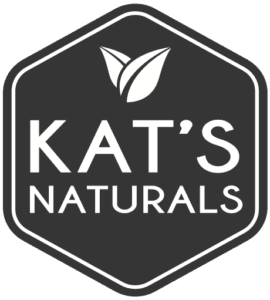No products in the cart.
Everything to Know About the CBD Industry
In the United States, the 2018 Farm Bill made industrial hemp federally lawful, meaning companies could sell hemp extracts like CBD edibles, CBD oils, CBD creams, and more. The introduction of hemp-derived remedies has made cannabidiol (CBD) products a household name.
Many people are excited to use these remedies because they have great benefits. For example, researchers and consumers believe CBD can help reduce anxiety, alleviate pain, decrease inflammation, protect the brain, boost heart health, and soothe the skin. With so many therapeutic effects, it’s no wonder the CBD market is extremely successful even though the Food and Drug Administration (FDA) doesn’t regulate its products.
But while things are going fairly well for the CBD industry, it’s still like many other markets. CBD companies face misconceptions, challenges, and a lot of competition to see which brand will come out on top.
Hemp-derived CBD vs cannabis CBD
One of the many misconceptions of CBD is that it will get consumers high, but hemp-derived remedies do not cause a psychoactive effect. They are not like cannabis products that contain CBD, and the difference primarily comes down to the THC content.
Industrial hemp, which is federally legal, contains less than 0.3% THC. If brands want to sell CBD products, they can’t go over this legal amount. Otherwise, they may get in trouble and potentially cause consumers to experience a psychoactive effect.
Cannabis-based CBD, on the other hand, has much higher levels of THC, usually going well beyond 0.3%. As a result, these remedies are federally illegal.
But despite the differences between hemp-derived CBD and cannabis-based CBD, they do have some similarities. Industrial hemp actually comes from the Cannabis sativa plant, but it’s called “hemp” because it doesn’t contain high levels of THC.
Top challenges in the CBD industry
Unfortunately, the industry isn’t just dealing with misconceptions. CBD companies also face various hurdles oftentimes because of misconceptions and the ever-changing legal landscape. In fact, the CBD industry faces obstacles that most industries don’t experience. For example, the common problems include the following:
- Banking: Because of the fluctuating regulatory landscape, CBD companies have little access to banking services. Many banks and merchant processors drop CBD brands, leaving them and their customers without any assistance.
- Insurance: It’s not easy for CBD companies to find affordable insurance. Even though these businesses are operating in a legal market, prices for insurance remain incredibly high.
- Access to capital: Despite CBD’s popularity, banks and other lenders are not quick to help fund CBD companies. Most lenders think the industry is too risky because there are no regulatory requirements, leaving many CBD companies to bootstrap their business.
These challenges make it difficult for entrepreneurs in the industry to operate their brand and succeed. Things are always changing in the market, and rejection has become a norm. However, devot customers make it possible for reputable CBD brands to make money and thrive.
Competition in the CBD industry
Forecasts predict that U.S. CBD sales will be worth more than $20 billion by the year 2024. During our own analysis, we found that there are over 9,400 CBD companies registered in the U.S. compared to the 2,300 brands we saw the previous year and the 60 brands we noticed the year before that. But the CBD bubble is popping.
The warning letters that the FDA sends to disreputable CBD brands are already weeding out some of the more unscrupulous businesses. At the same time, massive layoffs have been seen on both sides of the cannabis industry, with overzealous growth projections cited as a significant factor.
Entrepreneurs who put much time and money into establishing their businesses have repeatedly seen rivals open up next door and sell inferior products for cheaper prices, forcing startup leaders out of business when consumers opt for substandard products instead.
The illicit cannabis trade is also a stiff source of competition, particularly in states like California, where obtaining a license to trade legally can cost up to $1 million. Faced with this barrier, many sellers who are unable to find investors decide to sell illegally, and it’s estimated that consumers are still more likely to purchase marijuana from illicit vendors than legal stores. Meanwhile, licensed stores that pay taxes of up to 70%, and whose products are tested to ensure they meet safety standards cannot compete with a thriving black market.
But many business owners hope the CBD industry will begin to refocus in 2020 and that the ratio of reputable brands to unreliable (or illicit) ones will increase. As the market moves on from a challenging year, the industry expects companies that have concentrated on steadily building their infrastructure, acquiring certifications, and doing things the right way to survive. Elsewhere, brands whose business models are based on extracting as much profit as possible before shutting down operations will begin to leave the market.
How market saturation hurts consumers
Right now, market saturation is terrible for consumers. A vast number of brands, competing sources of information, and the presence of shoddy, unregulated products make the CBD industry overwhelming for most users.
This impact is reflected in the national decline that we’ve noticed in the purchase of CBD products despite the rapid increase in vendors. As consumers lose faith in the industry, they simply stop buying the products that come out of it.
However, there’s still good news. The trend should reverse as the CBD industry becomes more professional, and consumer confidence returns. But emphasis must be placed upon recognizing ethical brands, improving service, and demanding store owners to educate themselves so that they can give their customers reliable advice.
This professionalization will likely coincide with the popping of the ‘CBD bubble.’ The move to a less saturated, more informed market will be beneficial for consumers and brands alike, but it will come at the cost of many existing companies.
How the CBD industry will shrink
Based on current trends, we expect the CBD bubble to pop slowly over the next five years. Though predictions have their limitations, it’s already possible to identify several ways in which the industry is likely to contract.
1. Bad Management
We’ve already seen large companies flounder due to poor decision-making. In these cases, industry experts—perhaps without the requisite business experience—receive large amounts of capital and undertake huge expenditures, based on assumptions that the industry will boom faster than it does.
Companies like these acquire tens of millions of dollars in investment and spend much of it on large salaries, extravagant infrastructure, and hiring staff before they are needed. But when this “build it and they will come” mentality doesn’t yield results, the companies find themselves with huge amounts of debt and several dissatisfied stockholders.
Typically, the next step is to drastically scale back operations and remove the CEO, but then the remaining stockholders are without the industry knowledge to seize operations themselves. In many cases, investors pull out whatever funds they can and leave the company to collapse.
2. Consolidation
In a competitive market, we’ll likely see more companies with similar processes merging in order to consolidate their positions.
Last year, we saw Cresco acquire CannaRoyalty in a stock transaction valued at $825 million. Shortly after, a company called Harvest Health & Recreation announced its acquisition of Verano Holdings, a multi-state operator in the CBD industry, for $850 million.
Forbes claims the cannabis market is “ripe for significant consolidation” and that mergers like this will probably become more commonplace. As it stands, there are too many companies — both large and small — with licenses to sell cannabis, and at the top end, over 50 of them are publicly traded. As those companies struggle to compete and justify their large valuations, many companies will turn to consolidation to survive.
3. Regulation
Anticipated FDA regulations will also bring visible changes to the industry.
Legislation recently introduced by the U.S. House Agriculture Committee could force companies to treat CBD products as dietary supplements. If passed, this increased regulation would make CBD products safer and prevent vendors from selling low-quality or mislabelled goods.
In November, the FDA stated that CBD was not generally recognized as safe (GRAS), undermining the entire market. But, by forcing out unscrupulous actors, increased regulation would legitimize the CBD industry and reinforce consumer confidence.
Still, if people currently use CBD and don’t want to wait for legislatures to restructure the industry to find a good product, they might be left wondering: which current brands are likely to survive the cull?
Choose a CBD brand that will be here tomorrow
The honest answer is we don’t know which CBD brands will survive. Unfortunately, the market is too unpredictable to choose a brand whose survival is assured, and the best advice we can give is for consumers to pick the company they believe is conscientious and whose products they’re happy with.
The desaturation of the CBD industry seems unavoidable, but it will be good for consumers in the long run. And in the short term, desaturation provides a unique opportunity for people to shape the market by supporting the companies they love. The CBD bubble may pop, but consumers’ favorite companies in the industry don’t have to get left behind if they’re willing to stand by the brands they enjoy.





